HERD IMMUNITY occurs when a sufficient proportion of a population is immune to an infectious disease (through vaccination and/or prior illness) to make its spread from person to person unlikely. Even individuals not vaccinated (such as newborns and those with chronic illnesses) are offered some protection because the disease has little opportunity to spread within the community.” (Center for Disease Control)
With the endless flurry of information, rumors and conflicting claims made daily about the novel coronavirus, it’s good to have an expert to cut through the confusion and fear — even if the news is not what people hope to hear.
“Herd immunity” is years away and the U.S. is not approaching any light at the end of a tunnel, epidemiologist George Rutherford MD told 100 attendees of the annual meeting of the League of Women Voters, held online May 6 via Zoom.
The Piedmont resident, who heads the Division of Infectious Disease and Global Epidemiology at UC San Francisco and is a professor of Epidemiology and Health Administration at UC Berkeley, works with the World Health Organization and the Centers for Disease Control and Prevention on the spread and control of COVID-19 and other infectious diseases.
The bottom line, Rutherford said, is that this is not the time for reopening the economy and resuming life as it was. Precautions such as sheltering, face coverings, maintaining social distancing, frequent hand-washing and avoiding contact and should remain in place to ward off a major new spike in novel coronavirus cases and deaths.
Rutherford noted that some states haven’t implemented shelter-in-place rules and others “have walked away” from protective measures, saying that unless measures are maintained projections are that new cases will increase to 200,000 daily by summer, according to forecasts presented to the White House.
“[200,000 cases] is an astronomical number,” he said. “Opening the economy is going to mean more disease, more death.”
California has generally been successful in its measures and “The Bay Area has done remarkably well” in containing the spread of the virus, Rutherford said, even in stemming the transmission of the virus at facilities such as 750-bed Laguna Honda Hospital in San Francisco, where an outbreak has been limited to five patients and 16 staff members. Without protective measures, new cases “can spread like wildfire” at nursing homes, homeless shelters and other group living situations.
Rutherford cited the death toll of 58,000 in Vietnam and 34,000 in the Korean War, saying that without precautions “We’re going to equal that every month. This is the grim reality.”
The effort to “flatten the curve” is to ensure there is adequate health care available and to buy time for researching a vaccine, which he said will — or at least should — be when normal life resumes.
“Winter is what really scares people who do what I do,” Rutherford said. “The reason is the 1918 influenza pandemic” that killed almost 1 percent of Americans. San Francisco, as now, had mandated wearing masks and was ahead of most cities in preventing new cases. But the mandate was ended under great public pressure in November 1918 and transmission of the virus soared, with 3,000 additional deaths by December.
“We are entering a precarious period,” Rutherford said, with “a fine balance between economic activity and death.” There is a misconception that “we are coming out of the end of the tunnel,” when in reality, the situation is merely “at a lull,” he said.
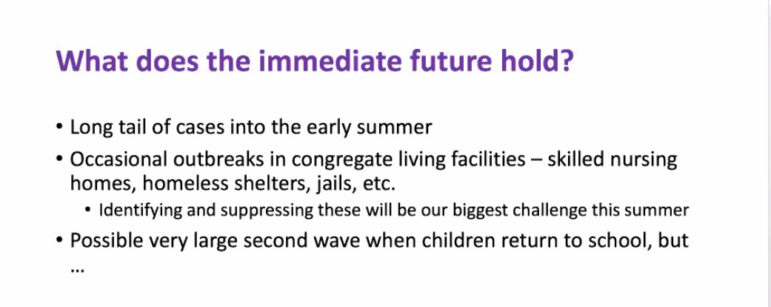
The number of cases in children, who often show no symptoms, is underreported, he said, which means a greater risk factor for others in the household.
If schools do reopen, it should be with schedules that allow distancing, such as alternating attending smaller classes on certain days of the week and attending remotely on other days. School absenteeism should also be carefully examined, with a quick response of quarantine for suspected cases and isolation for confirmed cases. Without these steps, cases could leap again when school resumes.
In response to an audience question about recreational activities such as tennis, pickleball or even playing catch with a football, Rutherford said the chance of transmission is unlikely. “If you’re worried, wear gloves,” and wash your hands when you’re done, he said. Washing is better than hand sanitizer, he added.
Asked about disproportionate infection rates in communities of color, Rutherford said anyone in public-facing jobs, including bus drivers, day laborers, and security guards often have minimal protection and little option other than to continue working. They face higher risk. Until changes are made, people in those positions will “bear the burden of infection and death, Rutherford said.
“We’ve gotta figure a way to get people to wear masks,” he said. “We gotta keep people apart from one another.”
Contrary to some theories now circulating, herd immunity is not coming soon. “We are years away from this” Rutherford said. “We have to get a vaccine. This is serious, serious stuff. People are starting to back away from this. My job is to scare people.”
View entire slide show from Rutherford’s presentation (click arrows above). View the video of his talk on the Piedmont League of Women Voters’ website: https://my.lwv.org/california/piedmont.
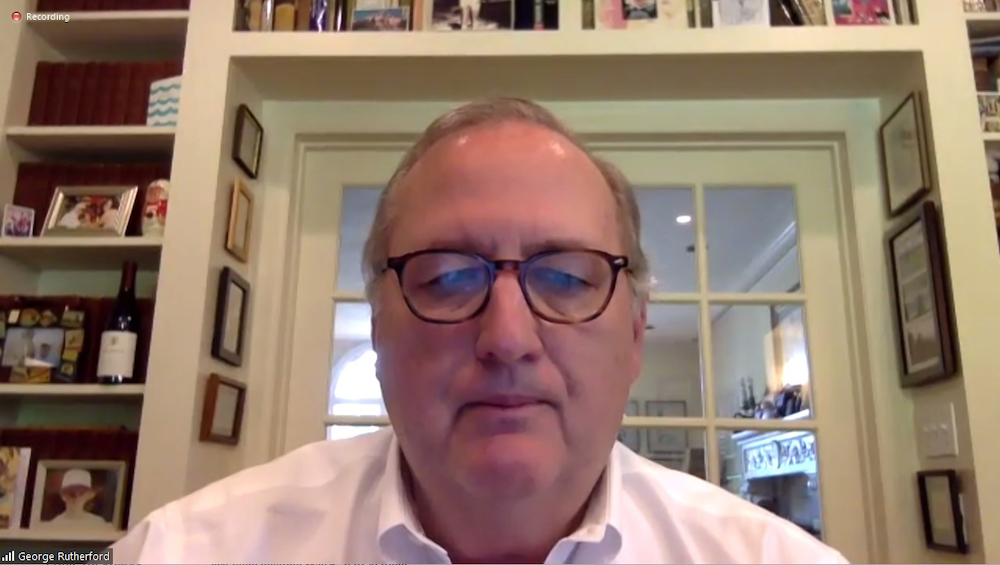


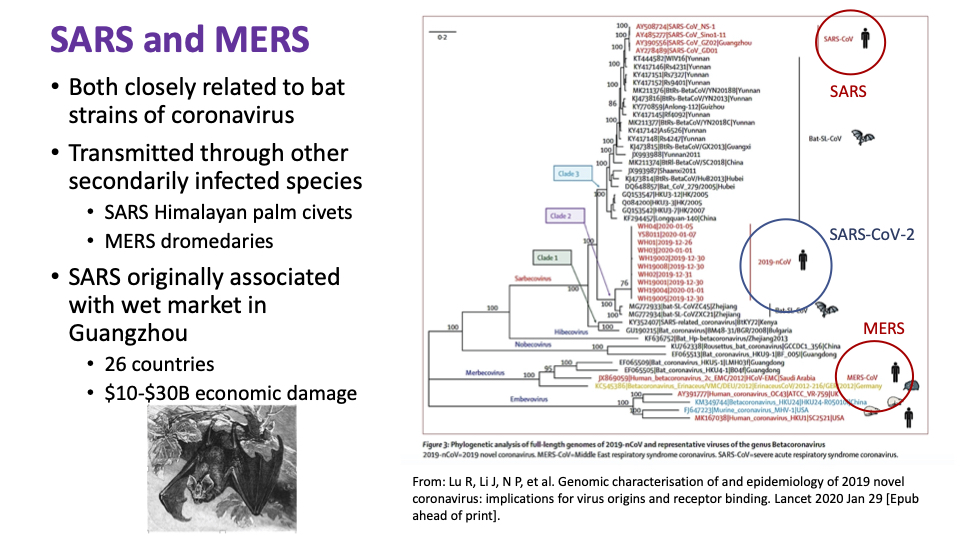
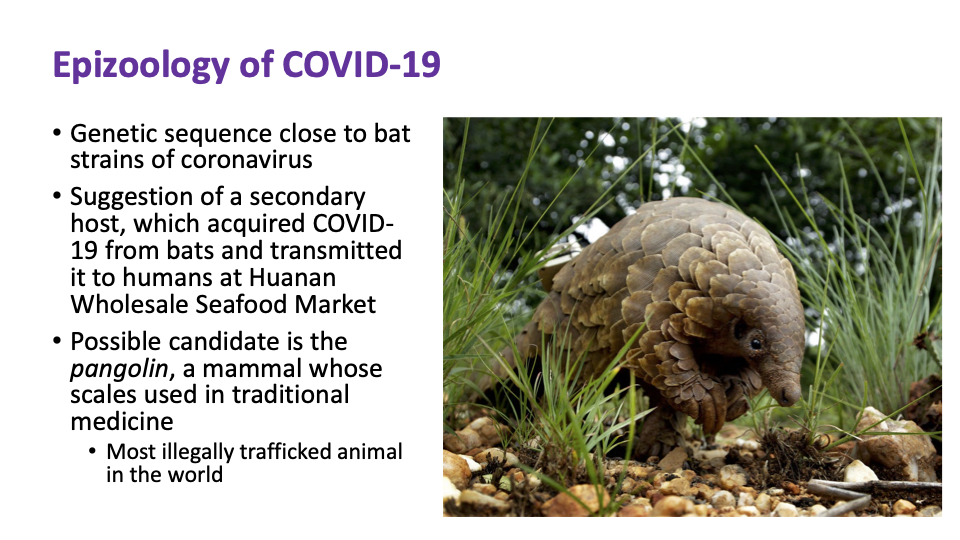


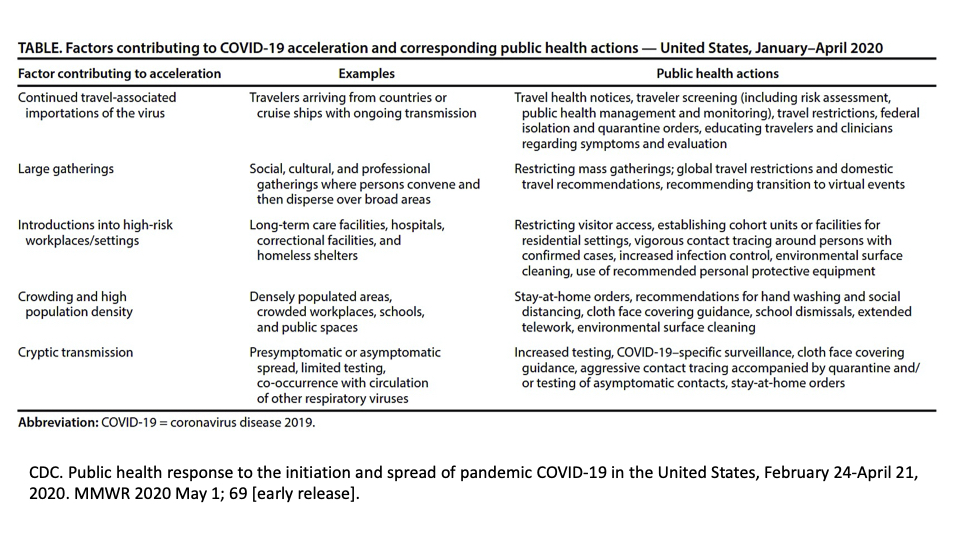
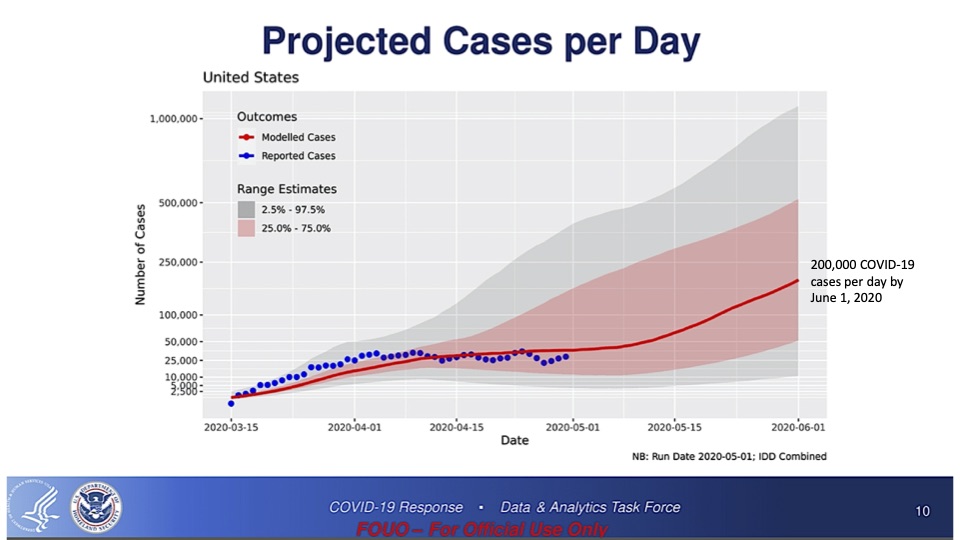
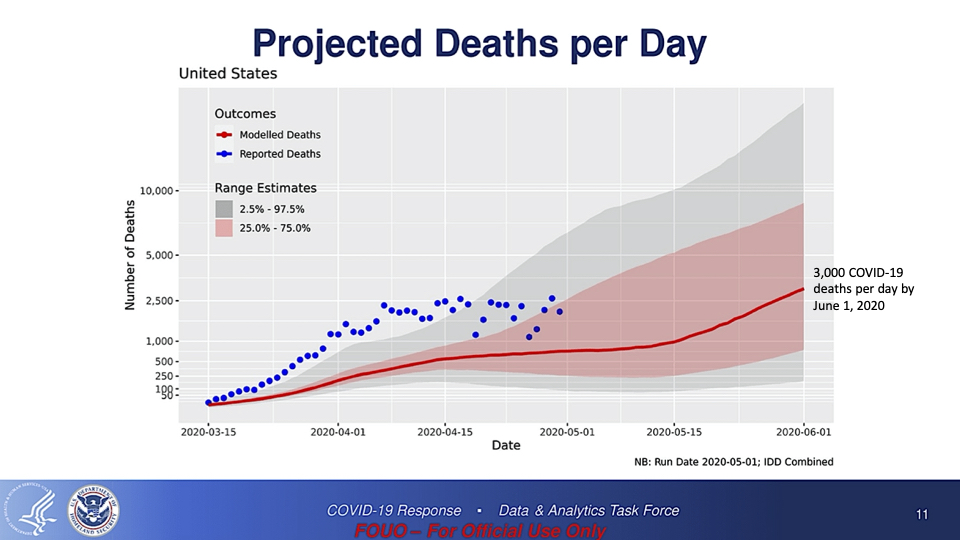
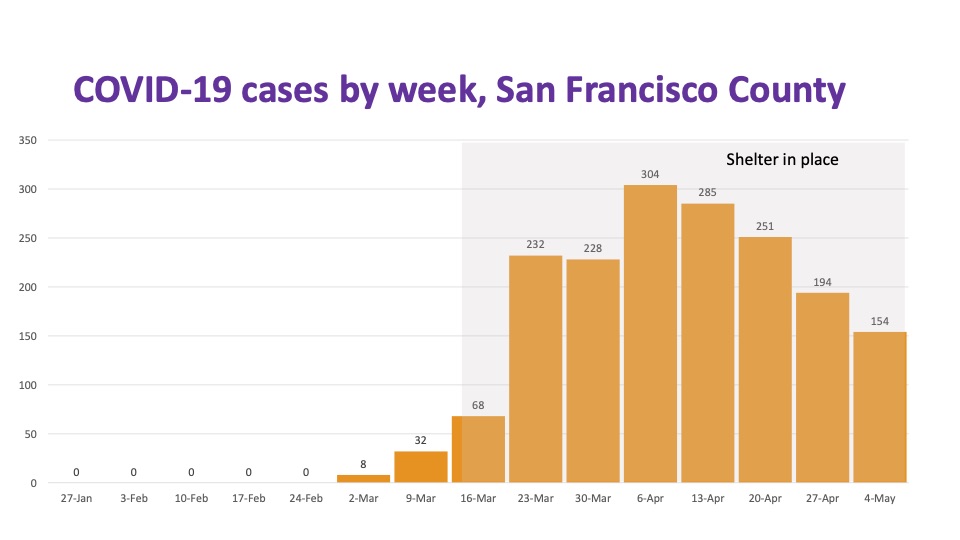
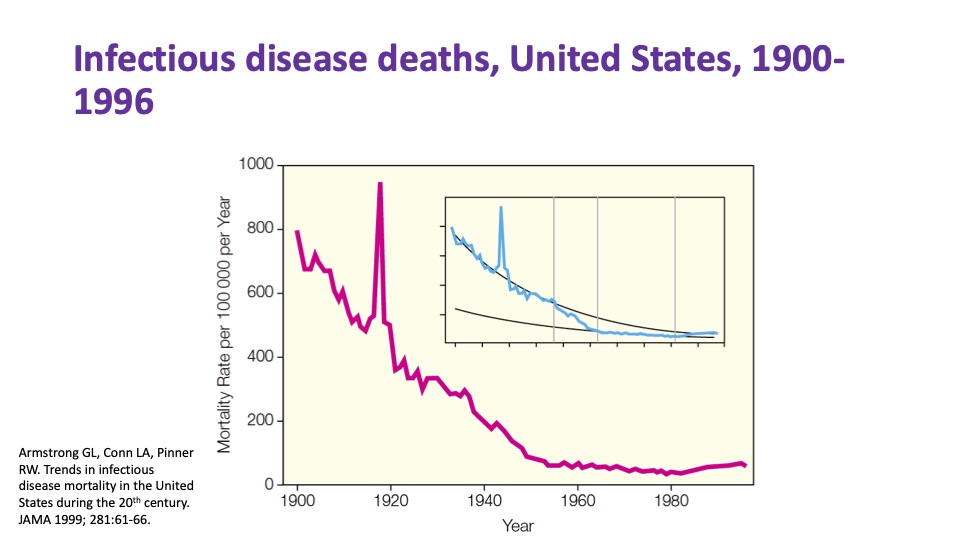
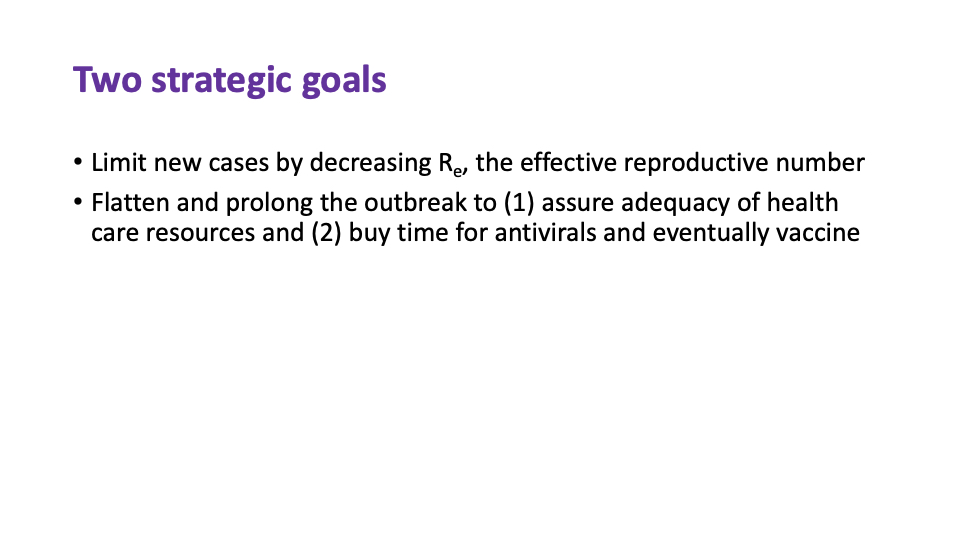
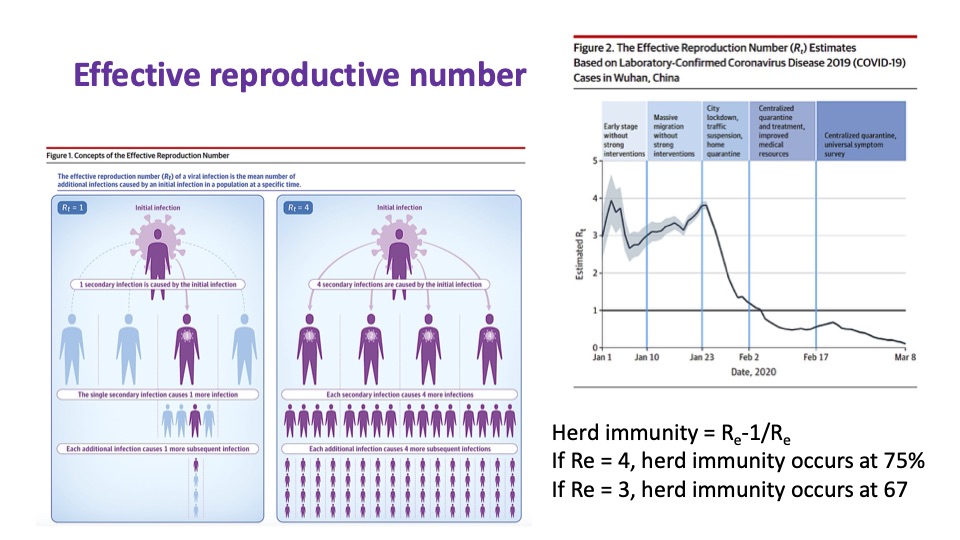
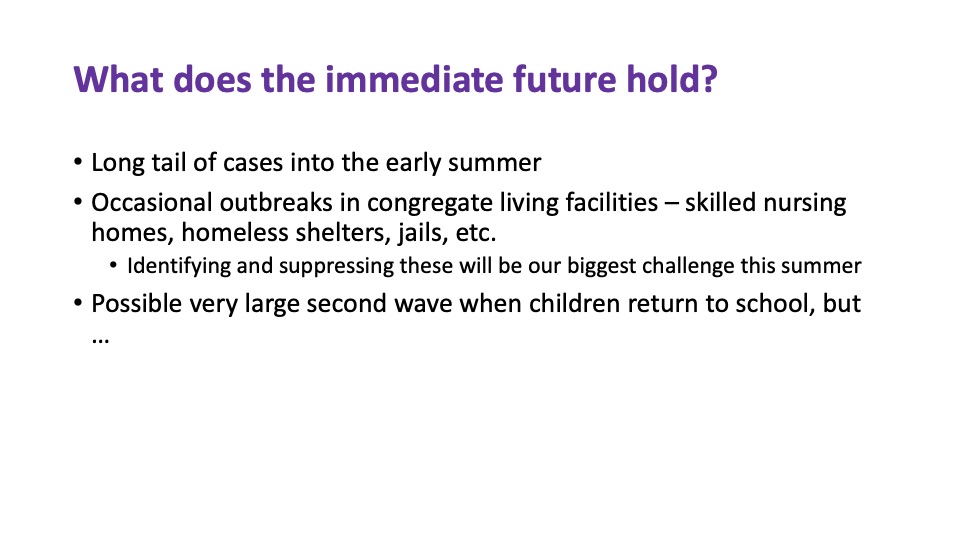
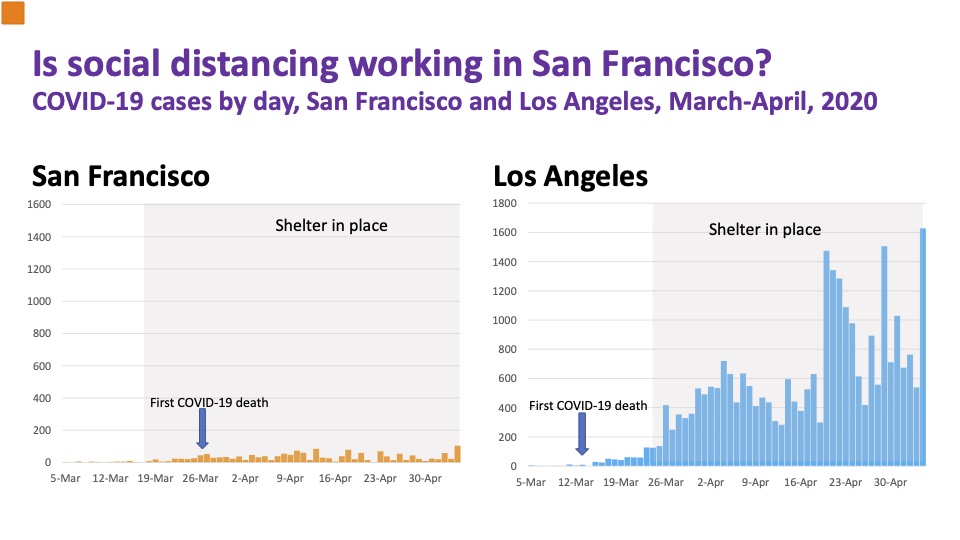
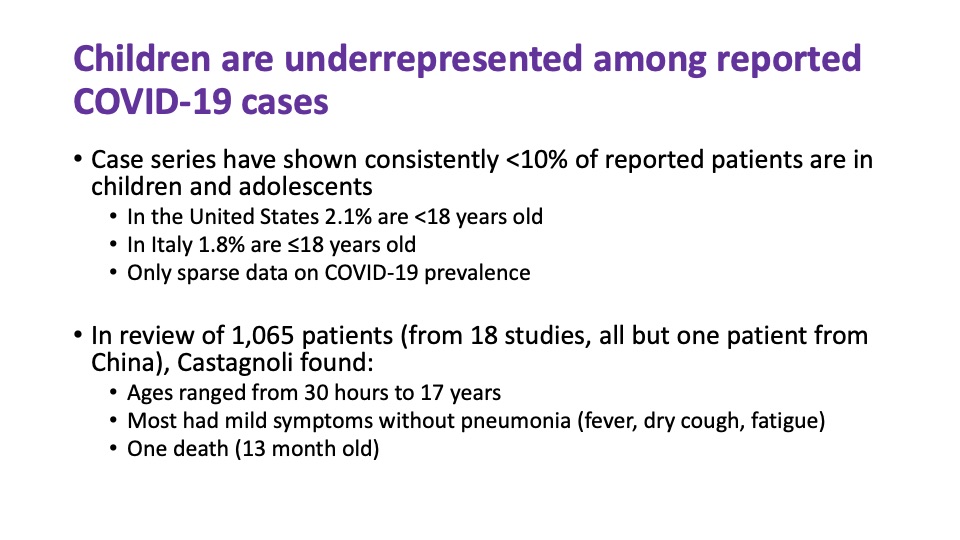
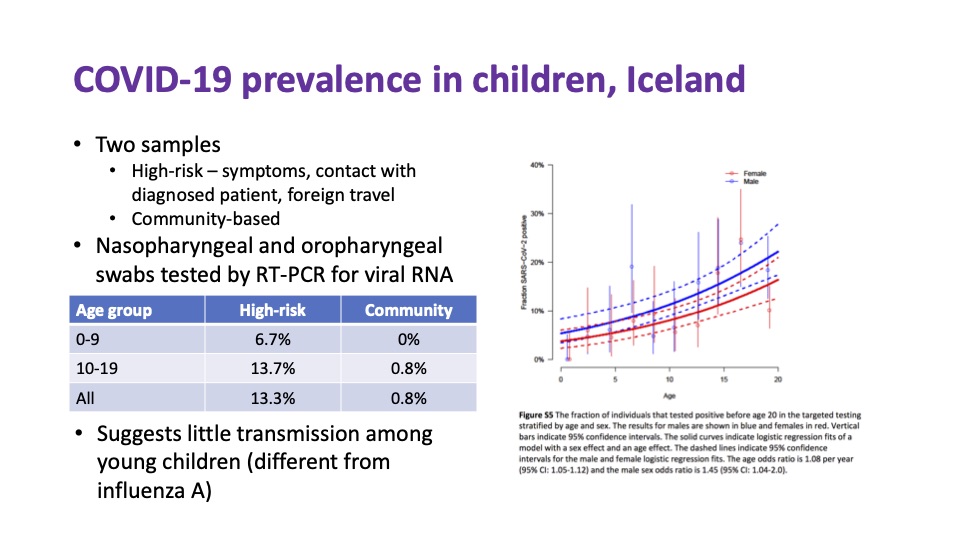
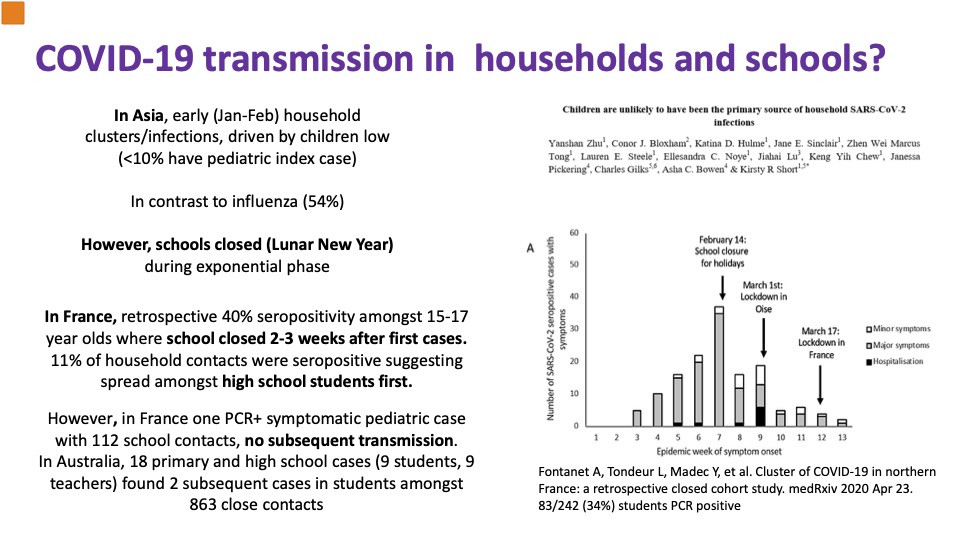
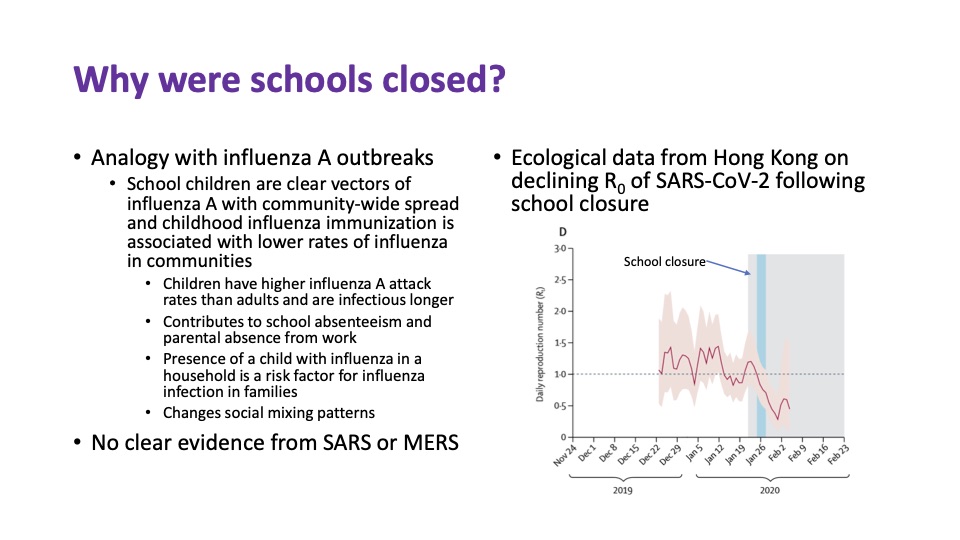
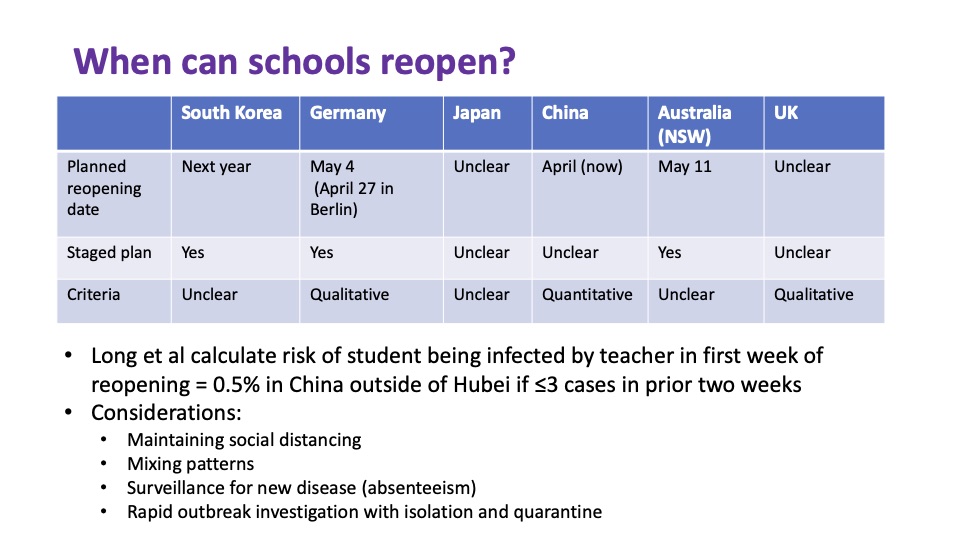
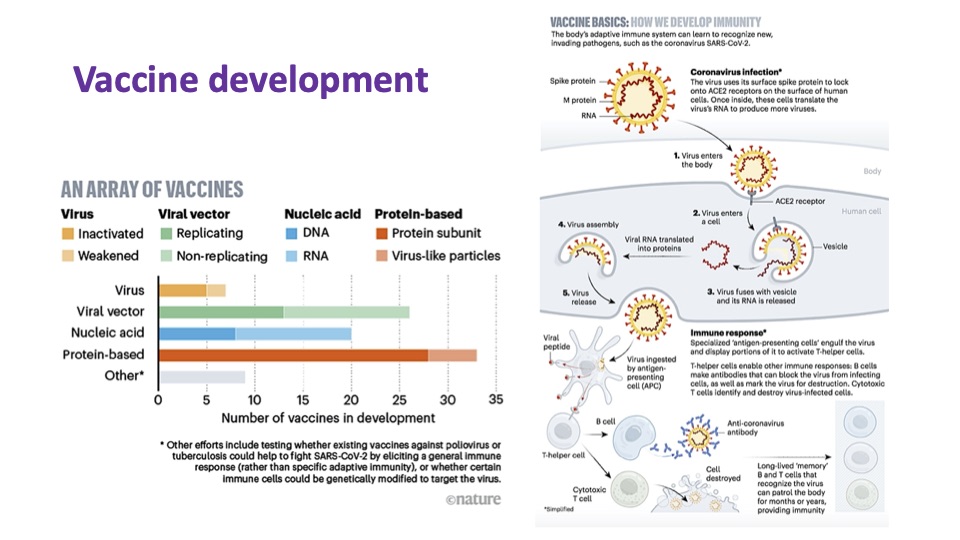
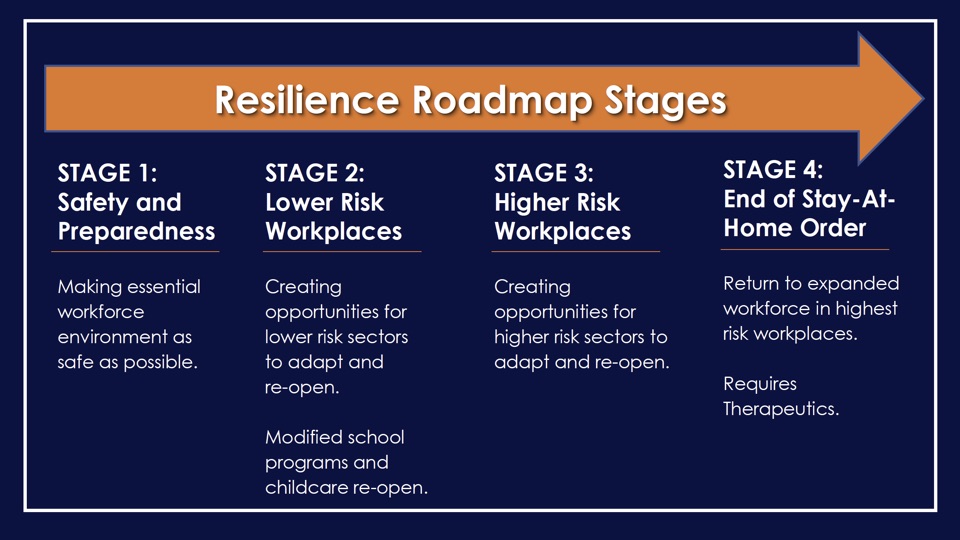
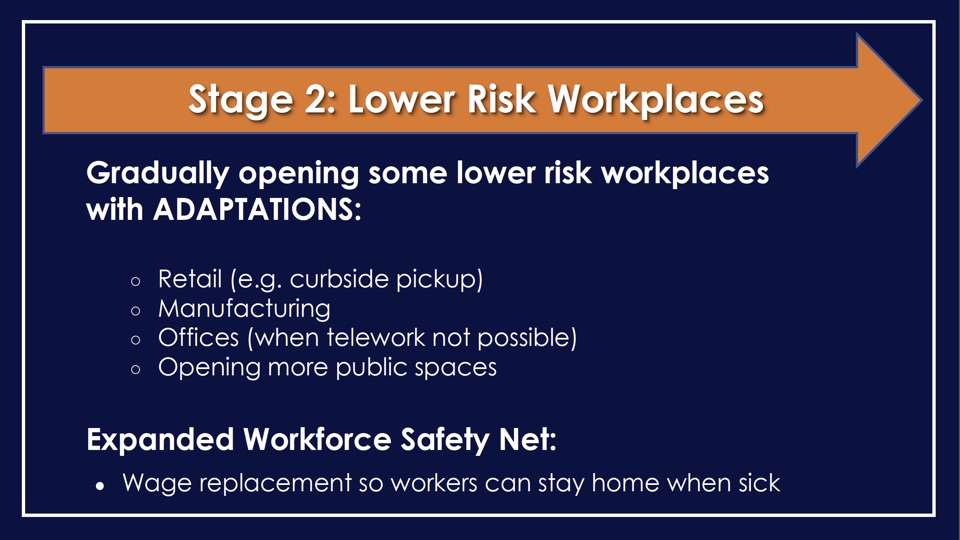
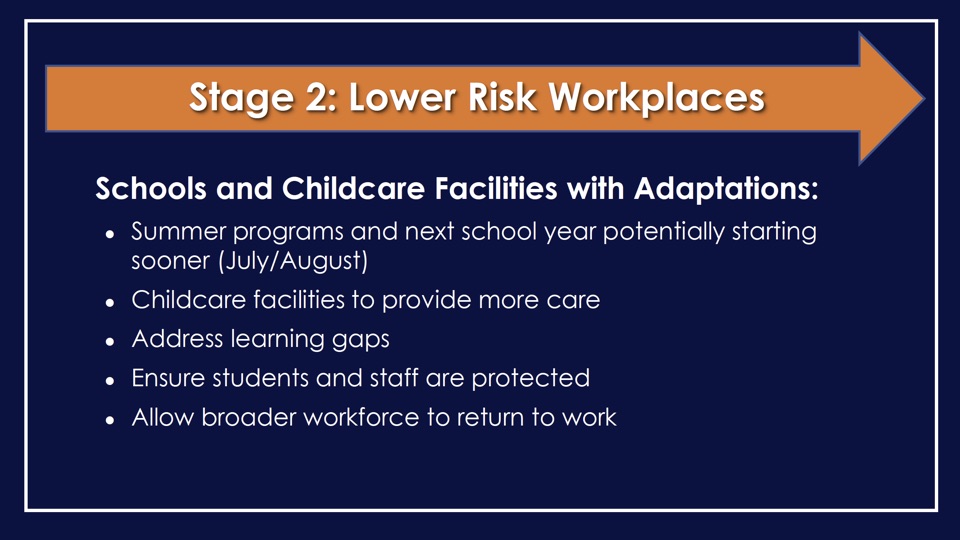
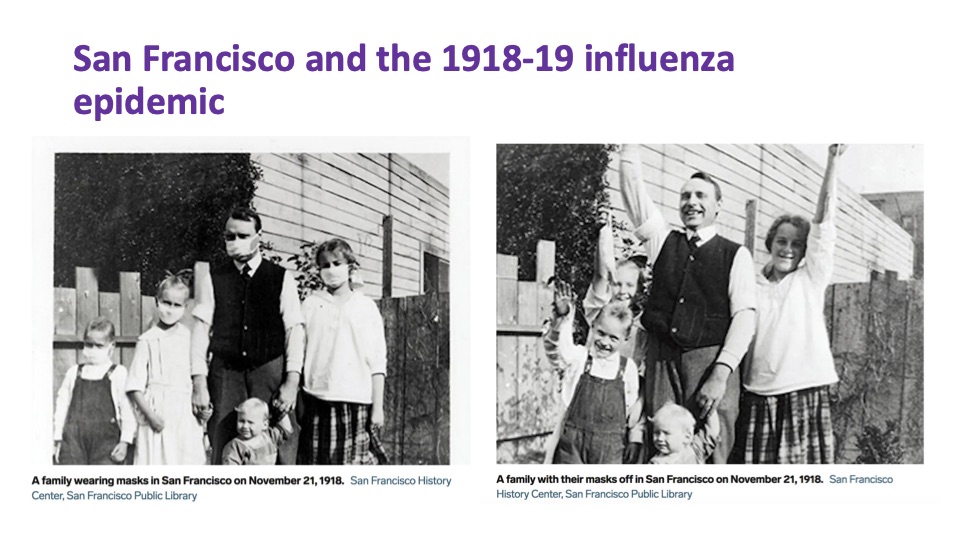
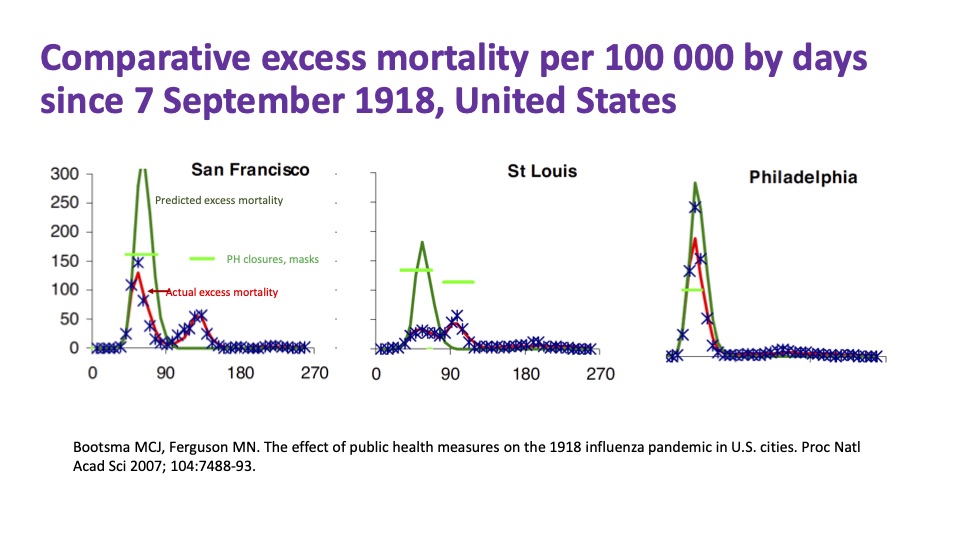
I just listen to Dr. George Rutherford presentation up to the questions and answer sessions.
I also listen to the recording of a set of presentations organized by the French Academy of Sciences on May 7 (https://www.academie-sciences.fr/fr/Seances-publiques/covid-19-seance-exceptionnelle.html) with participation of members of the Pasteur Institute (https://en.wikipedia.org/wiki/Pasteur_Institute).
If you understand French I would encourage you to listen to it: https://www.youtube.com/watch?v=OCvDDlBD7yk
The overall impressions left by Rutherford and the Academie des Sciences presenters are quite different. I will elaborate in a subsequent posting.
I think it is important to have reasoned unemotional conservations in our community on how to proceed, even though we probably cannot influence what the health authorities will ultimately decide. But at least a better understanding of the options will help support these decisions.
Bernard Pech